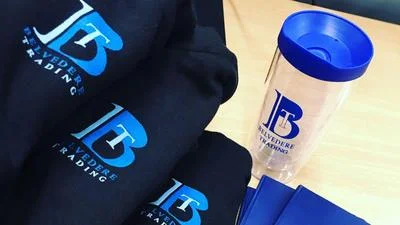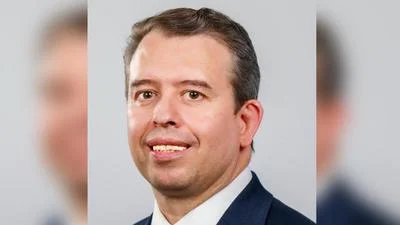Home Visiting Task Force Executive Committee met May 2.
Here is the minutes as provided by the committee:
Participants: Diana Rauner (co-chair), Gaylord Gieseke (co-chair), Anna Potere, Elaine Duensing, Andrea Chua,
Teresa Kelly, Julia Marynus, Labraya Harris, Theresa Nyhill, Noelle Norris, Catherine Enright, Bakahia Madison,
Ralph Schubert, Kathy Staten, Claire Dunham, Penny Smith, Angela Bailey, Madiha Qureshi, Laurie Roxworthy,
Deb Rosenberg, Kelly Vrablic, Andrea Palmer, Cynthia Tate, Jaime Russell, Lesley Schwartz, Melanie Garrett,
Gail Nourse, Donna Emmons, Roy Harley, Shauna Ejeh
Welcome and Introductions
• January 24th, 2017 Meeting Minutes: The minutes were approved pending changes recommended by
Donna Emmons.
• The Task Force recognized the retirement of Roy Harley and expressed its gratitude for his many
contributions to the field of home visiting.
MIECHV Reauthorization
• The current reauthorization of MIECHV will expire on September 30th of this year unless Congress takes
action to extend it. Generally, there appears to be support for the MIECHV program, but there is not yet a
clear vehicle or way to pay for it.
• The Continuing Resolution includes increases to Head Start, Child Care, and Title V but does not include
MIECHV. At this point, MIECHV could be attached to another vehicle such as CHIP reauthorization or TANF,
but no vehicle is moving quickly.
• There are multiple advocacy efforts currently underway at both the state and national levels to reauthorize
MIECHV:
o On March 15th, Diana Rauner – along with three other witnesses - testified before the Human
Resources Subcommittee of the House Ways and Means Committee in connection with a hearing
on MIECHV reauthorization. The Hearing examined a range of home visiting models, reviewed how
states operate and fund programs, and highlighted how an evidence-based home visiting program
can produce positive outcomes for children and families. Illinois Representative Danny Davis, who
is the ranking member of the Subcommittee, talked about the positive outcomes of home visiting
services and shared his reflections on how MIECHV has benefitted his congressional district. The
Hearing was notable for its bi-partisan nature. Committee members on both sides of the aisle
expressed strong support for the MIECHV program.
o A sign-on letter was distributed from the co-chairs of the Task Force to the Early Learning Council
for organizations to express their support for extending the MIECHV program, which will be sent to
the Illinois Congressional delegation.
o The Ounce has also created a webpage through its main website that houses a variety of resources
related to MIECHV reauthorization, including infographics and ways to engage with federal
legislators, such as letters that one can send directly from the website, talking points in case one
wants to call their federal legislators, and how to find one’s federal legislators.
Connecting Home Visiting and MCH/Title V
• The Illinois Department of Public Health (IDPH) completed its MCH Needs Assessment, which is required
every five years. One the findings highlighted was that there are huge racial disparities in measures
including teen homicide rates, infant mortality, and pediatric asthma emergency department usage.
• Developmental screening is one of the performance indicators for Title V. Illinois has a 43% screening rate
but in reality it is likely higher. IDPH, the Ounce of Prevention Fund, the Governor’s Office of Early
Childhood Development, and representatives from the Early Intervention system are discussing how to
coordinate across systems that are conducting developmental screenings. The group met in December and
identified 4-5 areas of work they will pursue.
• The next needs assessment will be completed in 2020, and work will begin on that this year. IDPH expects
to find geographic disparities with regards to opioid usage. IDPH also wants to bring a trauma lens to
conducting screenings.
• Refer to PowerPoint presentation and the FY17 Illinois MCH Action Plan for additional information.
Breastfeeding Blueprint
• HealthConnect One spearheaded the development of the Blueprint.
• One of the recommendations was to increase the number of baby-friendly designated hospitals. The rate
of hospitals that are designated baby-friendly is rising quickly.
• There has been steady progress from 2000-2014 in the percentage of women who are breastfeeding. In
2012, Illinois surpassed the goal set by Healthy People 2020.
• The American Academy of Pediatrics recommends exclusive breastfeeding for the first 6 months of life.
This is at 44% in Illinois, which is an increase from the original blueprint.
• There are disparities in rates depending on race/ethnicity as well as income level. Low-income women
have a lower rate of breastfeeding and within that, African-American women have a lower rate of
breastfeeding. Within higher income groups, there is less of a racial/ethnic disparity.
• Three out of 4 of the evidence-based home visiting models implemented in Illinois have shown positive
impacts on breastfeeding rates. Data from Parents as Teachers was not found.
• Rates tend to drop when mothers return to work, meaning that it should be a priority to support new
mothers when they return to work. An essential benefit through the Affordable Care Act is that the
employer provides space and time for pumping. Refer to PowerPoint presentation for additional
information.
Status of Home Visiting System
• ISBE:
o A revised plan for the Early Childhood Block Grant (ECBG) funding for FY18 is being put in place to
allow predictability and stability for currently funded grantees while also allowing for program
expansion opportunities. Due to delays in the release of the Requests for Proposals, the full recompetition
of the ECBG is being delayed until FY 19, pending final Board approval. Currently
funded Preschool for All (PFA), Preschool for All Expansion (PFAE), and Prevention Initiative (PI)
grantees will receive continuation funding for FY 18 and will complete continuation
applications. For FY 18, there will be 2 RFPs, one for PFAE and one for PI, released in May 2017
which will be open to new applicants and continuing programs. Awards for these two RFPs will be
based on additional funding being appropriated to the ECBG.
o For the full re-competition for FY19 there will be 3 RFPs: 1) Preschool for All, 2) Preschool for All
Expansion, and 3) Prevention Initiative. The anticipated release date for these RFPs is Fall/Winter
2017. Information will continue to be posted on the Early Childhood RFP webpage,
https://www.isbe.net/Pages/RFPs.aspx. Questions may be addressed to the Early Childhood
Division at earlychi@isbe.net or 217/524-4835.
• HS/EHS:
o In March and April there were 2 national meetings, where there was an increased interest
expressed in EHS home-based, so the Office of Head Start has hired staff to help sites.
o Enrollment is closely examined at the national level.
o EHS home-based programs are required to provide 46 1.5-hour visits per year, and home visitors
are expected to make up a visit if it is cancelled by the home visitor but not if the parent cancels.
o There are new requirements for programs to have a developmentally appropriate, research-based
early childhood home-based curriculum.
• MIECHV: MIECHV has been impacted by sequestration, but the data is as expected and, while there have
been some reductions, there have been no program closures to date.
• Ounce Training: There is a slight increase in training enrollment and attendance because programs are restaffing
and are completing trainings at higher rates.
Pilot Project Updates
• I-PPYC-HV:
o As of two weeks prior to the meeting, 12 families were receiving services and 6 were receiving
outreach. Of the 5 families who declined services, most felt that there were already too many
providers in their homes.
o The total population of pregnant and parenting youth in care is 319, 33 of which have been
referred to home visiting services but many more have been identified. Andrea Chua will report
back on the percentage of the eligible population that is being served.
o An additional site, Healthy Families Chicago, has expressed interest in participating in the pilot.
o Refer to handout for additional information.
• UNSS/Illinois Family Connects:
o The first pilot site, in Stephenson County, has launched and has been providing services through
the Health Department since early April and as of May 1 is providing services through the partner
hospital, Freeport Health Network.
o On May 1, a kick-off event was held in Freeport to celebrate the initiation of the program. The
poster and brochure that were developed for the program were shared, and Julia Marynus
reported that after seeing information about the program in local media there has been a
significant increase in interest from families in participating in the program.
Wrap Up and Next Steps: Our next meeting is July 25th from 2:30-4:30pm. Please share suggestions for agenda
items with Anna.
https://www.illinois.gov/gov/OECD/Events/Event%20Documents/HVTF%20Meeting%202May2017%20Minutes.pdf






 Alerts Sign-up
Alerts Sign-up